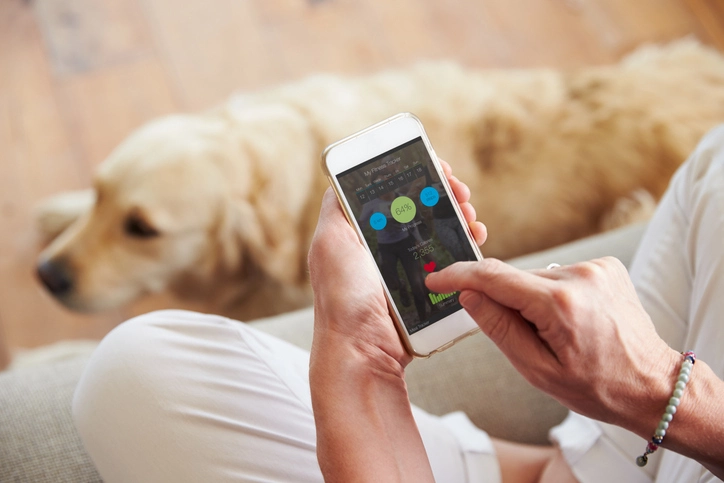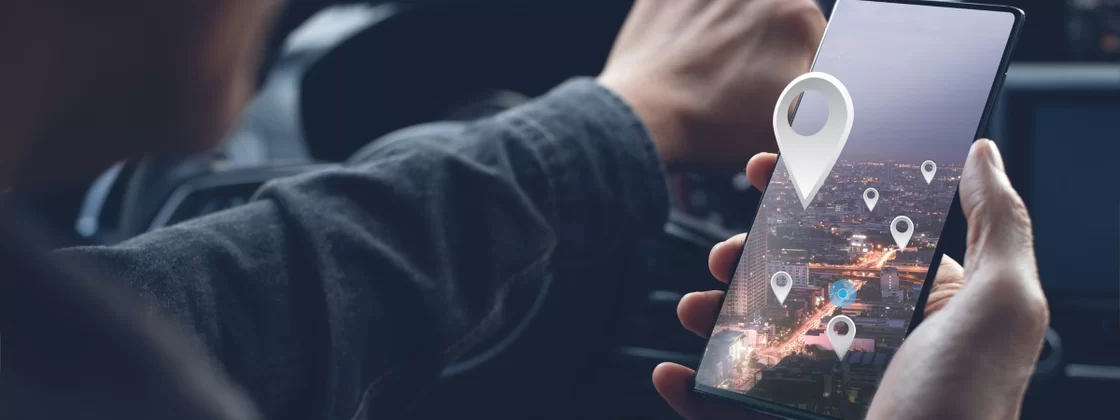When you access an application, it is very likely that it will ask for authorization to track your location. And it is even more common for people to authorize it without even thinking about whether it is safe or not.
After all, what doors are you opening when you let an app “follow” you? And how can you protect your data? In this text, we share everything you need to know to use your apps safely.
Why do apps ask to track your location?

Maybe this is a mysterious question for you: after all, why does an app want so much to know your location? There are different answers to this question. Many applications will use this data to improve your experience during use: they can suggest good establishments via geolocation, allow you to check- in at places you like on your social networks, or even suggest profiles that are geographically close, in the case of mobile apps. affair. In other words, for certain software, knowing where you are is essential.
However, security experts suggest that you don’t leave location access on all the time. What can happen is an unwanted invasion of your privacy. This is because there are apps that sell the data collected to other companies, which can track your location information to offer you advertisements for unwanted services and products, for example.
Another reason is that access to location can also make you more vulnerable to cyberattacks. The reason for this is that your location information, as well as other data you share, is stored in the databases of the company that owns the app. If the company is hacked, its data could be leaked and used by cybercriminals.
How to avoid tracking your location?
![]()
It is best to allow location sharing only while the application is being used and only if this is really necessary. Therefore, it is essential to stay aware of how to check whether your information is open to apps, as well as maintain good security practices. Here are some tips:
Check which apps have permission to use your location
Regardless of your device’s operating system, you can check tracking authorizations and revoke them whenever you deem necessary. This is done in your device’s settings, in the sections linked to privacy or applications.
Authorize only for when you are using
When you install an application on your cell phone, an authorization request usually appears on the screen. Depending on the app, this may include access to your contacts, permission to make calls, and real-time location, among others.
Speaking of location, there are three options: authorize, authorize only during use, and do not authorize. The idea is to only give authorization when you are using it – most apps do not need to run in the background, that is when you are not using them.
Only install trusted applications
Both Apple’s AppStore and Android’s Google Play offer a verification badge for applications considered trustworthy. The idea is to only install apps with this proof, to ensure that you are not putting your device and data at risk.
Uninstall apps you don’t use
Many people have the habit of installing an application, stopping using it, but never remembering to delete it. This can open up vulnerability gaps regarding access to your data. The suggestion then is to create a routine to check and delete apps that you are not used to opening. If necessary, you can always install them again.
Use VPN
Using a Virtual Private Network (VPN) is one way to protect privacy on the internet. A good network, like Kaspersky VPN, encrypts your connection, hiding your device’s IP address. This encryption prevents your location, messages, and other data from being tracked and exposed online.
It’s always good to remember that, in addition to the issue of location, there are several other risks caused by malicious apps. They can even damage your devices permanently. Therefore, the most recommended attitude is to always maintain a reliable security system on your devices.
Kaspersky, a leader in the cybersecurity market, offers three plan options that can be used on both your smartphone and computer. They include VPN, as well as antivirus, antimalware, and antiransomware protection. So you can always be sure that you will be protected from any type of threat.




